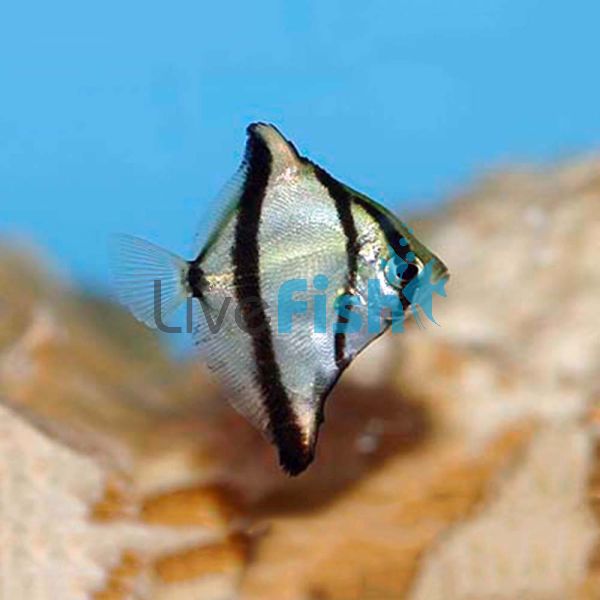African Mono - Brackish 4cm
When it comes to stocking a brackish water aquarium there can often be a lack of ideas simply due to the lack of awareness of some of the amazing species. One of these awesome fish is the African mono sebae fish, this versatile species can be kept fresh all the way to full saltwater. This species is a very close relative of the mono argenteus which looks incredibly similar. Both species are often regarded as the silver dollars of the brackish and saltwater aquarium world.
- Buy 4 for $30.65 each and save 10%
- Buy 8 for $27.25 each and save 20%
African Mono
When it comes to stocking a brackish water aquarium there can often be a lack of ideas simply due to the lack of awareness of some of the amazing species. One of these awesome fish is the African mono sebae fish, this versatile species can be kept fresh all the way to full saltwater. This species is a very close relative of the mono argenteus which looks incredibly similar. Both species are often regarded as the silver dollars of the brackish and saltwater aquarium world.
These fish have a characteristic deep body with a hook-like ventral fin, they resemble the shape of a diamond and have a similar shiny aesthetic. The mono sebae has this silvery colour from head to tail with shades of green and brown near the nape of the head. Along with this, they have 4 jet black vertical stripes that are spaced out from the eye to the tail which breaks up the silver colour perfectly. The mono sebae grows to a decent length of around 15 cm however get around 20 cm tall, so they do have a large footprint. They are however really thin fish which just makes them such an oddball fish.
In terms of breeding these unique, oddball fish there are no records of successful reproduction in the home aquarium. Since these fish can travel between freshwater and saltwater multiple times in their life their breeding cycle most likely involves both of these environments which can be hard to replicate in the home aquarium. These fish can be naturally found across the Atlantic coast of Africa.
Tank Recommendations for your African Mono
As the African mono has a large footprint and prefers to be kept in schools of at least 3 fish or more, it is best to keep in an aquarium with a minimum volume of 200 litres. This ensures that they have ample swimming space since these are active fish along with room for other tank mates.
The mono sebae is mostly an open water species so the aquarium setting itself is not a major concern. Giving them some places of refuge through the use of rock and driftwood may be suitable. These fish also plant safe however any finer leafed plants such as wisteria may be at risk of being eaten. These are also tropical fish that are best kept at 24-26 degrees.
Suitable Tank Buddies
The mono sebae is a fairly peaceful species, there have been reports that they can chase around smaller tank mates however in a large aquarium they should be fine with most fish.
Usually Compatible
Mono argents, mudskippers, scats, freshwater mullet, shortfin eel, rainbow fish, and similar species.
Sometimes Compatible
Smaller species like blue eyes and semi-aggressive South American cichlids like convicts or fire mouths.
Rarely Compatible
Any nano fish like neon tetras, endless guppies, shrimp, and large predator fish such as barramundi could make a meal of the mono sebae.
Feeding your Mono Sebae
The mono Sebae should take to a wide range of aquarium foods. When they are kept in a group, these fish can show an awesome feeding frenzy behavior. It is best to feed these fish a varied diet that consists of plant and protein matter.
The ideal diet would be a good quality pellet or flake food, supplemented with frozen bloodworms or black worms.
| Scientific Name | Monodactylus Sebae |
|---|---|
| Care Level | Moderate |
| Common Names | African Mono, mono sebae, african mono sebae |
| Diet | Omnivore |
| Fish Family | Monodactylidae |
| Lifespan (years) | 10 |
| Max. Length (cm) | 15 |
| Min. Tank Volume (l) | 200 Litres |
| Origin | Africa |
| Reef Safe | Yes |
| Sociability | Peaceful |
| Venomous | No |
| Water Conditions | 24-26° C, pH 7.0-8.5 |




